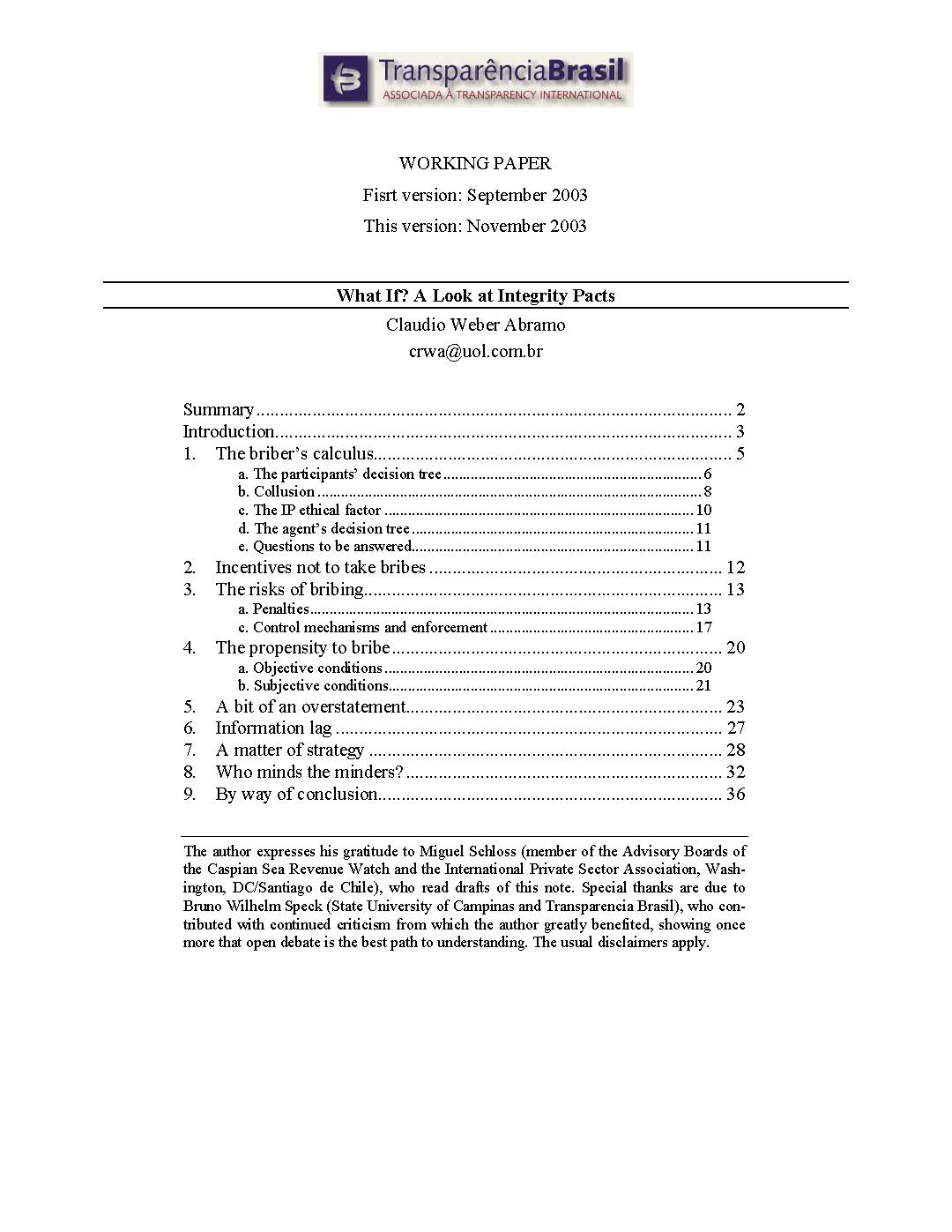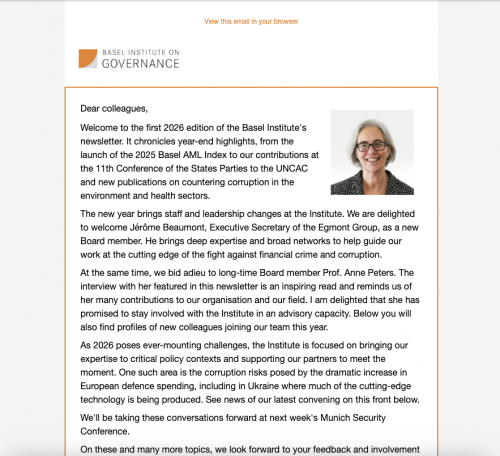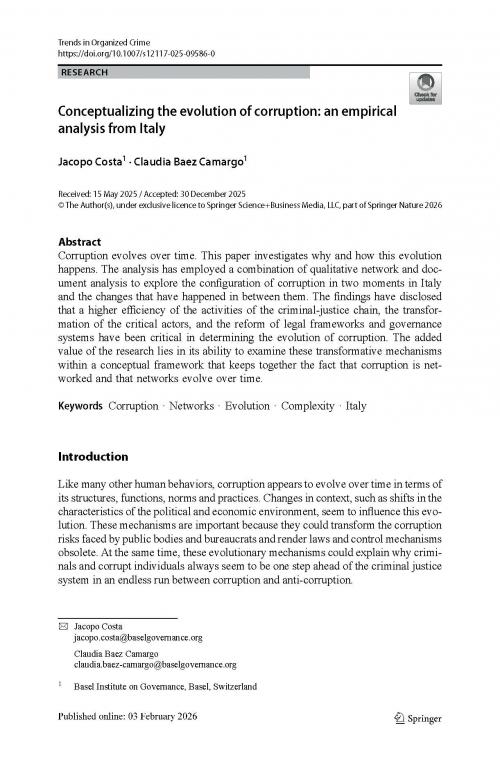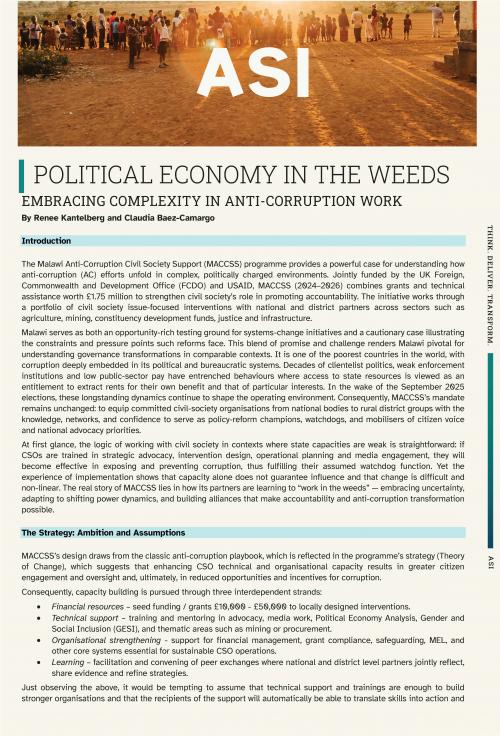What If? A Look at Integrity Pacts
This note examines the Integrity Pact (IP) methodology proposed by Transparency International to confront the problem of corruption in public procurement.
The examination draws from a decision model for participants developed elsewhere, in which the critical elements are shown to be the vulnerability of the conditions under which the tender is conducted and the risk of bribing. The IP methodology intends to interfere with the central elements in individual tender instantiations by a process of discussion leading to mutual trust; participants and public officials sign a pledge of honesty. Disputes are to be resolved by private arbitration and allegedly enforcement is attained by force of a private contract between participants.
Preferably, a civil society organization stimulates and monitors the process and acts as fiducial guarantor.
Publicising proceedings stimulates discus-sion and enhances transparency. All this is held to favourably affect the process, leading to better results. This, in turn, is held to affect the overall environment over time.
In order to accommodate for the ethical dimension introduced by IPs, the present analysis incorporates an “ethical” factor operating over the conditions under which tenders are conducted. Ascertaining the operation of this hypothetical factor is an empirical question.
Links and other languages




